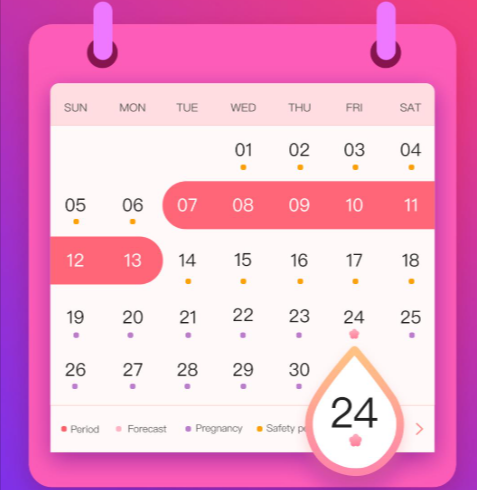Telmisartan
What is telmisartan?
Telmisartan is an angiotensin II receptor blocker (sometimes called an ARB) that is used to treat high blood pressure (hypertension). Lowering blood pressure may lower your risk of a stroke or heart attack.
Telmisartan is also used to reduce the risk of stroke, heart attack, or death from heart problems in people who are at least 55 years old with risk factors for serious heart disorders.
Telmisartan side effects
Get emergency medical help if you have signs of an allergic reaction: hives; difficult breathing; swelling of your face, lips, tongue, or throat.
Also call your doctor at once if you have:
a light-headed feeling, like you might pass out;
little or no urination;
swelling in your feet or ankles, rapid weight gain;
unusual pain or tightness in your lower body;
a skin ulcer; or
high blood potassium–nausea, weakness, tingly feeling, chest pain, irregular heartbeats, loss of movement.
Common side effects of telmisartan may include:
stuffy nose, sinus pain;
back pain; or
diarrhea.
Before taking this medicine
You should not use telmisartan if you are allergic to it.
If you have diabetes, do not take telmisartan with any medicine that contains aliskiren (a blood pressure medicine).
You may also need to avoid taking telmisartan with aliskiren if you have kidney disease.
Tell your doctor if you have ever had:
a heart condition other than one being treated with telmisartan;
kidney disease (or if you are on dialysis); or
if you are on a low-salt diet.
Do not use if you are pregnant. Stop using the medicine and tell your doctor right away if you become pregnant. Telmisartan can cause injury or death to the unborn baby if you take the medicine during your second or third trimester.
If you plan to get pregnant, ask your doctor for a safer medicine to use before and during pregnancy. Having high blood pressure during pregnancy may cause complications in the mother and the baby.
You should not breastfeed while using telmisartan.
What should I tell my doctor before taking paracetamol?
Before you take paracetamol, tell your healthcare provider about all of your medical conditions, including:
- if you suffer from mild arthritis and need to take pain relief every day
- have liver or kidney problems
- are underweight or malnourished
- regularly drink alcohol. You may be more open to the side effects of paracetamol if you drink large amounts of alcohol.
- have a severe infection as this may increase you risk of metabolic acidosis. Signs of metabolic acidosis include:
- deep, rapid, difficult breathing
- feeling sick (nausea)
- being sick (vomiting)
- loss of appetite
Contact your doctor immediately if you get a combination of these symptoms. You may need to avoid or limit paracetamol.
- have glucose-6-phosphatedehydrogenase deficiency (enzyme deficiency)
- suffer from asthma and are sensitive to aspirin
- have hemolytic anemia (abnormal breakdown of red blood cells)
How should I take telmisartan?
Follow all directions on your prescription label and read all medication guides or instruction sheets. Your doctor may occasionally change your dose. Use the medicine exactly as directed.
Take telmisartan at the same time each day, with or without food.
Call your doctor if you are sick with vomiting or diarrhea, or if you are sweating more than usual. You can easily become dehydrated while taking telmisartan.
It may take 2 to 4 weeks before your blood pressure is under control. Keep using this medicine even if you feel well. High blood pressure often has no symptoms.
You may need to use blood pressure medicine for the rest of your life. Treatment may also include diet, exercise, lowering cholesterol, not smoking, and controlling diabetes.
Your blood pressure will need to be checked often. Your liver or kidney function may also need to be checked.
Store at room temperature away from moisture and heat. Keep the tablets in their original package or container, along with any packet or canister of moisture-absorbing preservative.
Keep this medicine in its original packaging until you’re ready to take a tablet. Tear or cut one tablet blister from the package, peel back the paper liner, and push the tablet through the foil
Telmisartan dosing information
Usual Adult Dose for Hypertension:
Initial dose: 40 mg orally once a day
Maintenance dose: 40 to 80 mg orally once a day
Comments: Most of the antihypertensive effect is present within 2 weeks; maximum blood pressure reduction at a given dose is generally observed within 4 weeks of starting that dose.
Usual Adult Dose for Cardiovascular Risk Reduction:
80 mg orally once a day
Comments:
-It is unknown whether doses lower than 80 mg are effective in reducing the risk of cardiovascular morbidity and mortality.
-When initiating this drug for cardiovascular risk reduction, monitoring of blood pressure is recommended, and if appropriate, adjustment of other medications that lower blood pressure.
Use: Reduction of risk of myocardial infarction, stroke, or death from cardiovascular causes in patients 55 years or older at high risk of developing major cardiovascular events who are unable to take angiotensin-converting enzyme (ACE) inhibitors. High risk for cardiovascular events can be evidenced by a history of coronary artery disease, peripheral arterial disease, stroke, transient ischemic attack, or high-risk diabetes (insulin-dependent or non-insulin dependent) with evidence of end-organ damage.
Interaction
Health Tools
Related/Similar Drugs
Paracetamol
Home What is paracetamol? Paracetamol (Panadol, Calpol, Alvedon) is an analgesic and antipyretic drug that is used to temporarily relieve […]
Ibuprofen
Home What is ibuprofen? Ibuprofen is a nonsteroidal anti-inflammatory drug (NSAID). It works by reducing hormones that cause inflammation and pain […]
Morphine
Home What is morphine? Morphine is used to treat moderate to severe pain when alternative pain relief medicines are not effective or […]
Tradamol
Home What is tramadol? Tramadol is an opioid agonist that may be used to treat moderate to moderately severe chronic […]
Acetaminophen
Home Overview Side Effects Dosages Warning Interaction What is acetaminophen? Acetaminophen is a pain reliever and a fever reducer. Acetaminophen […]




